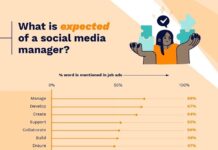I’m old enough to have learned how to type on a mechanical typewriter, not a keyboard. My first set of bosses retired without ever having learned how to use email at work. Over the last 20 years, I’ve seen incredible technology innovations.
But until recently, all of that technology was designed primarily to automate tasks, systems, processes and organizations that had existed before. Email is just a faster way to send a letter. CRM systems are a vast improvement on the customer Rolodex. There were incredible improvements in productivity–but the basic ideas were familiar.
That’s changed. Technology in the age of social media is creating new types of relationships that didn’t exist before. And it is creating new ethical challenges about which the social media industry as a whole should be leading the debate–but is not.
Four Big Ethical Questions: Privacy, Identity, Power and Control
I’ve boiled the issues as I see them down into four broad buckets:
- Social Media and Privacy: Today’s generation is growing up confronted by an unprecedented lack of privacy. I’ve talked to many young (and not-so-young) people who feel overwhelmed by the constant scrutiny and judgment to which they believe they are subjected online. There is no longer the space to experiment with your own identity as you grow older and wiser, to make mistakes and change your mind, without a permanent digital record of your cringe-worthy former self. The reality is that having an active online social presence is fast becoming a job requirement; opting out will not be an option for future generations.
- Managing Your Digital Identity: Are you the same person on Facebook, on Twitter, on LinkedIn and in real life? Or does the fact that you have an audience change how you behave? According to new data from Sauder School of Business researchers at the University of British Columbia, certain media, like text messaging or Twitter, are more likely to encourage people to be untruthful. What kind of photo do you chose for your profile? What kind of image do you want to project to someone who visits your Twitter feed? How much access do you allow to your Facebook profile? Identity was always complicated, but it was not something that had to be managed.
- The New Balance of Power: The pen was always mightier than the sword. But in times past, you had to be lucky enough to have access to education, or a printing press, or a broadcast. Today the means of creating and distributing content are open to anyone–and the power of a Tweet or a Facebook campaign to undermine traditional military, governmental or corporate power structures has been well-documented. So now what happens? Just because you can attack a company publicly, does that mean you should? And what happens to traditional organizational structures and business management best practices if every employee has as much access to the information as the boss?
- Who Controls the Data? Every day, consumers share millions of pieces of content on a variety of platforms. There is tremendous convenience to the consumer in this transaction but, for the most part, consumers are giving up the right of ownership of their own data–and many platforms are pushing both the legal and ethical limits of how they can use that data. If you’re not paying for it, you’re not the customer, you’re the product being sold. Fair enough–but where do you draw the lines? Beyond copyright and intellectual property, there are a broad range of issues around how companies can use the behavioral data they collect about you, and things get even more complicated when the platforms start sharing data via their API.
The first two of these issues–privacy and digital identity–are consumer-specific. But just because privacy and digital identity management are issues that are ultimately the responsibility of the consumer of social media, doesn’t mean that they don’t affect brands and technology platforms, too. If consumers get so overwhelmed and turned off by these issues that they stop using a platform, you’re not going to have much of a business, are you?
The third issue–reshaping our society, government and business structures around a new power balance–is an enormous issue that may take several generations to address. But aren’t those of us who are at the forefront of using and building social media and related technologies–aren’t we in the best position to start leading this discussion and laying the right groundwork?
And the data control issue is certainly one that requires marketers and tech companies alike to ask and answer some tough questions and, in some cases, shift their thinking. Just because you can collect, store and use a certain piece of data, doesn’t mean you should. Do you really want regulators involved in making these decisions for you? Or do you think you’re in the best position to mediate what’s right for your business and what’s right for the users of your platform?
As we move into 2012, I’d love to see the social media industry as a whole–marketers, PR people, developers, social media professionals, investors–elevate the conversation to start addressing these issues at a high level.
Just as importantly, if you’re reading this post, you are likely an early adopter of many of these technologies. Remember that not everyone is as comfortable as you are in sharing information publicly. How you behave, and the example you set, will guide the actions of those that are still new or hesitant about using these tools–and ultimately, the kind of world that we are creating for the next generation.
These are powerful new tools we’re building. Let’s take a moment to think about what we’re building them for.


